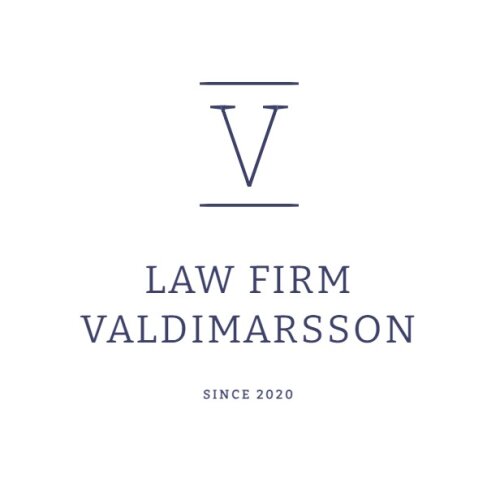Best Civil Rights Lawyers in Reykjavik
Share your needs with us, get contacted by law firms.
Free. Takes 2 min.
List of the best lawyers in Reykjavik, Iceland
About Civil Rights Law in Reykjavik, Iceland
Civil rights in Reykjavik, Iceland are founded on principles of equality and justice. The legal framework is designed to protect individuals from discrimination and ensure that everyone enjoys the same rights and opportunities. Civil rights law encompasses issues like freedom of speech, freedom of assembly, protection from discrimination based on race, gender, disability, and other personal characteristics, and the right to fair treatment in both public and private sectors. The legal system in Reykjavik, as in the rest of Iceland, is committed to upholding these rights through a combination of national legislation, international treaties, and judicial decisions.
Why You May Need a Lawyer
There are numerous situations where you might require legal assistance in the field of civil rights in Reykjavik. Here are some common scenarios:
- Discrimination at Work: If you believe you have been unfairly treated or discriminated against at your workplace due to your gender, race, religion, or disability.
- Housing Discrimination: If you have faced unfair treatment when trying to rent or buy property based on personal characteristics.
- Police Misconduct: If you have experienced unfair treatment or abuse by law enforcement officers.
- Denial of Access to Public Services: When you are denied access to public services or spaces due to discriminatory practices.
- Freedom of Expression: If your right to free speech or assembly has been unfairly restricted.
Local Laws Overview
Understanding the key aspects of local civil rights laws can help you recognize when your rights might be infringed. Here are some essential points:
- The Icelandic Constitution: It guarantees fundamental rights and freedoms, including equality before the law, freedom of expression, and the right to privacy.
- Anti-Discrimination Law: Laws in Reykjavik explicitly prevent discrimination based on race, gender, disability, age, sexual orientation, and other statuses. The Equal Status and Equal Rights Act for all genders ensures gender equality.
- Human Rights Act: Incorporates principles from international human rights treaties, ensuring these standards are enforceable in Icelandic courts.
- Data Protection: The Data Protection Act regulates the processing of personal data, ensuring privacy rights are respected.
- Labour Laws: Labour laws protect workers from unfair treatment and ensure safe and equitable work environments.
Frequently Asked Questions
1. What should I do if I face discrimination at work?
If you face discrimination at work, report the incident to your HR department or a supervisor. Document all instances of discrimination and seek legal advice if necessary.
2. Can I file a complaint if I am denied housing due to my race?
Yes, you can file a complaint with the Human Rights Office or the Equal Rights Complaints Committee in Reykjavik. Legal advice can help guide you through this process.
3. How are my privacy rights protected in Reykjavik?
Your privacy rights are protected under the Data Protection Act, which ensures your personal data is handled responsibly and laws regarding unauthorized surveillance.
4. What are my rights if I'm mistreated by the police?
If you experience police misconduct, you can file a complaint with the police oversight committee. Seeking legal assistance can help protect your rights.
5. Is freedom of expression protected in Reykjavik?
Yes, the Icelandic Constitution protects your freedom of expression. However, this right may be subject to limitations to prevent harm or hate speech.
6. Where can I report hate crimes?
Hate crimes should be reported to the police. Additionally, you can seek support from organizations that specialize in aiding victims of hate crimes.
7. How can I fight unfair treatment in education?
If you face discrimination in an educational setting, report it to the school's administration. Legal avenues are available if the institution fails to address your concerns adequately.
8. What rights do disabled persons have in Reykjavik?
Disabled persons have the right to equal treatment in all areas of life, including employment, education, and public services. Laws require reasonable accommodations to be made.
9. How are women's rights protected in Reykjavik?
Women's rights are protected under the Equal Status and Equal Rights Act, which aims to ensure gender equality in all sectors, including the workplace and education.
10. Can I get legal aid if I can't afford a lawyer?
Yes, legal aid is available for those who cannot afford a lawyer. Contact the Icelandic Bar Association or local legal aid organizations for assistance.
Additional Resources
Here are some resources and organizations that can provide support and information:
- The Icelandic Human Rights Centre: Offers legal advice and support related to human rights issues.
- Equal Rights Complaints Committee: Handles complaints regarding discrimination and equality issues.
- The Icelandic Data Protection Authority: Oversees issues related to data privacy and protection.
- The Advocacy Service for Disabled Persons: Provides assistance and advocacy for individuals with disabilities.
- Women's Rights Association: An organization focused on promoting and protecting women's rights in Iceland.
Next Steps
If you believe your civil rights have been violated, consider taking the following steps:
- Document all relevant incidents and collect evidence to support your case.
- Report the situation to the appropriate authority (e.g., HR department, school administration, police).
- Seek legal advice to understand your rights and the best course of action.
- Contact local organizations or legal aid services for support and guidance.
- If necessary, file a formal complaint or pursue legal action with the help of your lawyer.
Remember, safeguarding your civil rights is crucial, and there are resources and experts available to help you navigate the legal process. Don’t hesitate to reach out for assistance.
Lawzana helps you find the best lawyers and law firms in Reykjavik through a curated and pre-screened list of qualified legal professionals. Our platform offers rankings and detailed profiles of attorneys and law firms, allowing you to compare based on practice areas, including Civil Rights, experience, and client feedback.
Each profile includes a description of the firm's areas of practice, client reviews, team members and partners, year of establishment, spoken languages, office locations, contact information, social media presence, and any published articles or resources. Most firms on our platform speak English and are experienced in both local and international legal matters.
Get a quote from top-rated law firms in Reykjavik, Iceland — quickly, securely, and without unnecessary hassle.
Disclaimer:
The information provided on this page is for general informational purposes only and does not constitute legal advice. While we strive to ensure the accuracy and relevance of the content, legal information may change over time, and interpretations of the law can vary. You should always consult with a qualified legal professional for advice specific to your situation.
We disclaim all liability for actions taken or not taken based on the content of this page. If you believe any information is incorrect or outdated, please contact us, and we will review and update it where appropriate.











